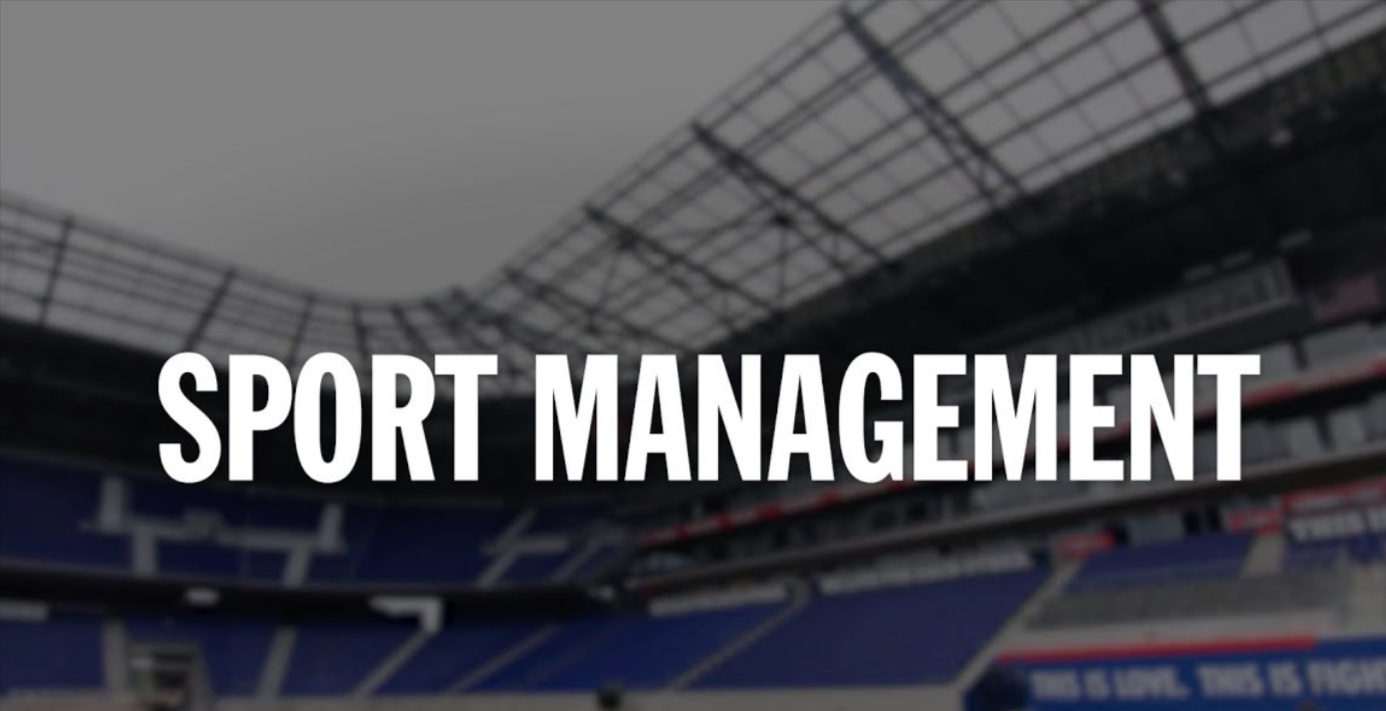How to Build a Career in Sports Management

Business management and organisation with a love of sport is a exciting and dynamic field to get into. From working with athletes, planning and executing major sporting events, or going behind the scenes with sports organizations, the arena of sports management is rich with diverse opportunities for individuals with a passion for the game to contribute to the industry in their own way.
With the bounds of this global sports industry expanding — from the traditional purviews of sport like football and basketball to eSports — so too is the demand for skilled professionals equipped to manage marketing, event planning, finance, human resources, and team management. A Comprehensive Guide to Sports Management Careers to help you navigate your path from degree to dream job.
What Is Sports Management?
They are managing the business side of sports teams and events. In this field, practitioners do so much more than managing people, sporting events, sponsorship deals and athlete contracts. The function can range from finance to advertising to operations to public relations.
So, sports professionals deal with sports clubs, professional teams, leagues, marketing agencies and event management companies. Other avenues include sports media, facility management, and player representation.
Seek a Career in Sports Management — Why?
Sports management is an ideal career for those who love sports without wanting to be an athlete. Closer to the action available but not high business and leadership skills level building.
Benefits of Sports Management Career:
- Challenging Day-to-Day Operations: From planning events to negotiating contracts, no two days are ever the same.
- Networking Opportunities: Meet athletes, coaches, sports executives, and industry professionals.
- Worldwide Opportunities: Because darkness finds itself there is not an effeminacy of expert possibilities to deal with global crews and associations in the realm of sport.
- Prospects of a High Salary: Individuals working in senior positions such as those of sports marketing directors or general managers can earn a lot of money
Ten Key Skills for a Sports Management Career
Success in sports management will require both the technical skills of business as well as personal skills. Here are a few core skills to cultivate:
- Communication Skills: This is one of the most critical aspects of interacting with athletes, sponsors, media, and stakeholders.
- Leadership — much of the work involves managing teams and motivating people to contribute to the common goals of an organization.
- Negotiation Skills: Helpful in getting sponsorships, player contracts, and business collaborations.
- Organizational Ability: It takes a lot of organizational skills to plan events, create schedules, and manage logistics.
- Problem Solving — One needs to think on his/her feet and have a quality of quick adaptability to deal with unforeseen things
- Marketing: Strong branding, fan engagement, and digital marketing are important.
Sports Management Educational Pathways
There are some positions that may not require a degree in sports management to get the job done, but having the right educational background can help you stand out. Here’s how to get started:
Earn a Bachelor’s Degree
A bachelor’s degree is required for most entry-level jobs in sports management. Relevant degrees include:
- Sports Management
- Business Administration
- Marketing
- Finance
- Communications
Courses generally address issues such as sports law, facility management, marketing and financial management.
Specialized Certifications
Certifications help improve your credentials and display specialized skills. Examples include:
- Certified Sports Event Executive (CSEE) Final
- SMWW Certifications by Sports Management Worldwide
- NASO Certification from the National Association for Sports Officials
Consider a Master’s Degree
In some cases, a master’s degree in sports management, business administration (MBA), or a related field may be a plus for advanced roles. This comes in handy especially for people who are striving for managerial positions.
Gaining Practical Experience
In the world of sports, experience is a key factor. Some of the ways to get relevant experience are as follows:
Internships
Practical experience and networking — At worst, an internship is a way to break into the industry. Programs that exist within professional teams, leagues, and sports marketing companies,
Volunteering
Assuming you have built up a practical repertoire of skills, volunteering at various local sports events, tournaments or clubs allows you to both gain experience and develop your contacts list.
Networking
Networking with sports industry professionals can lead to other opportunities. Go to industry events, join sports management organizations, and remain active on sites like LinkedIn.
Entry-Level Jobs
Begin in entry-level roles like event coordinator, administrative assistant, or marketing associate at a sports organization. It will impart the necessary skills in addition to experience in relation to higher roles.
Sports Management Opportunities Trending For Career
However, once you attain the education and experience needed, a number of different career paths can be pursued in sports management. Now, let us take a look at the role which are the most sought-after.
Sports Marketing Manager
It means creating promotion plans and programs for teams, events, and athletes. Focusing on branding, sponsorship deal, and fan engagement campaigns.
Essential Skills: Digital Marketing, Branding, Communication
Athletic Director
An athletic director manages sports programs at a college, university, or high school. They handle the finances, the game schedules, and the coaching staff.
Leadership, budgeting, and organizational skills
Event Coordinator
Event coordinators are responsible for logistics related to sporting events, including planning and scheduling as well as coordinating vendors and coverage of events.
Important Skills: Time Management, Organisational Skills, and Problem-Solving
Sports Agent
Consider the sports agent you are utilizing to negotiate contract, endorsement, and sponsorship agreements for you. They also provide career guidance and manage legal issues.
Key Skills: Negotiation, legal knowledge, networking, etc.
Facility Manager
Facility managers run the shows, keeping everything up and running during events at sports venues. They take care of all the maintenance, scheduling, and staffing.
Management Operations Problem Solving Leadership
Public Relations Manager
PR Managers deal with the media around a sports team or player. This includes handling press releases, media requests, and public appearances.
Skills: Communication skill, crisis management, media relations.
How to Move Up in Your Sports Management Career
After you score that first gig in sports management, here are a few things to keep in mind to climb the career ladder:
- Learning: Workshops, courses, seminars, and other ongoing options. Each can help you follow job trends, technology, current best practices and more in your field.
- Networking: Continue to meet professionals through conferences, associations, and talking with current industry leaders.
- Mentorship: Seek a mentor who can give you guidance on your career path
- Create a Robust Portfolio: Maintain a record of your accomplishments such as event management or a marketing campaign that you can showcase to others.
- keeping your passion: The sports industry is cut-throat and your passion is what will get you to stand out.
Difficulties in Sports Management
Every career has its obstacles, including sports management. Common challenges include:
- Strong Competition — The demand for quotas is limited so competition is the number one barrier to entry into the industry.
- Long hours: Many events take place during the evening, on weekends, and on holidays, so you will spend many nights or weekends away from family and friends, if you have them.
- working environment — do they face pressure, high-stakes deals, big events, or reputations of different clients or athletes?
Understanding these pitfalls and developing adequate time management, stress management and problem-solving techniques will make you overcome them efficiently.
Final Thoughts
A successful career in sports management is built on passion, hard work, and the right balance of education and experience. The career options for this industry is enormous ranging from marketing manager of a major league team to an event organizer to become a sports agent, this is becoming a massive industry.
With the right credentials, networking with accomplished professionals, along with sticking to your goals, you can create a promising career in such an exciting and fulfilling profession. If you are fond of sports and have good leadership and organizing skills, then sports management could be the right career choice for you.



